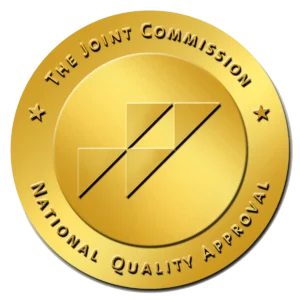Because May is Mental Health Awareness Month, you will likely see mental health information shared in the news, online, and possibly in groups you’re a member of. One devastating outcome of mental illness–and one often linked to substance use and addiction–is suicide.
The Link Between Addiction and Suicide
As reported by Psychology Today, people who struggle with addiction have a heightened risk for suicidality. The article lists a number of reasons for this:
- A person might have been using drugs to numb themselves from painful feelings. Once they stop using substances, those painful feelings could come rushing back.
- If someone has been feeling like their life isn’t worth living, substances may increase their willingness to act on their feelings.
- The substances themselves can cause depressed feelings that lead them to a risk of suicide.
- Someone may believe they are incapable of addiction recovery to the point that they decide it is better to die than to risk failure.
- The consequences of addiction, including legal problems, damaged relationships, lost jobs, tarnished reputation, and financial issues, may seem insurmountable.
Who Is at Greatest Risk?
As summarized in the journal article, “Drug Addiction as Risk for Suicide Attempts”, a number of factors can determine how likely a person who has struggled with substance abuse is to attempt suicide. These include:
- Age – an older person struggling with addiction is a higher risk than a younger one.
- History – a person with prior suicide attempts is more likely to try again.
- Co-occurring mental illness – a person who has been diagnosed with an affective disorder (a condition primarily impacting mood and emotion), especially depression, is at increased risk.
- Drug of choice – a person who uses sedatives, including opiates, is more likely to attempt suicide than a person who uses other categories of drugs.
- Impulsivity – a person who struggles to control their actions as a result of impulsive behavior is also more likely to try to end their lives.
Detecting Suicide Risk
A person who is contemplating suicide may or may not openly state that they are thinking of ending their life. It is important to take all suicidal statements seriously and also to know the signs of suicide risk. According to the National Institute of Mental Health (NIMH), these signs can include:
- Talking and thinking about death and wanting to die (whether or not they indicate that it would be by their own hand)
- Expressing feelings of hopelessness, being trapped, or seeing no way out
- Gathering items to end their life (a gun, pills, a rope, drugs)
- Expressing immense feelings of guilt and/or shame
- Stating that they are a burden to others
- Intense emotional and/or physical pain
- Using more often
- Mood swings, especially seeming anxious, agitated, enraged or vengeful
- Withdrawing from loved ones
- Changing their sleeping and eating habits
- Risky behavior in general, such as driving carelessly
- Saying goodbye to friends and family
- Putting affairs in order, making a will, and giving away important possessions
What Can Be Done?
If you are concerned that someone may be experiencing suicidal thoughts, there are 5 steps the NIMH suggests you should take to help keep them safe.
1) Ask if they are thinking of ending their lives. A lot of people are afraid of this step because they think they will be giving the person the idea to kill themselves. In reality, this may be the best opportunity you have to change their mind.
2) Keep them safe. If the person says they are planning to harm themselves, find out what their plan is and remove the intended tools, as well as anything else that could be used to end their life.
3) Be present with them. Listen to the person who is feeling suicidal and do not judge or shame them for their feelings.
4) Help them connect. A number of resources offer help to those who are feeling suicidal.
- 800-273-TALK (8255) is the National Suicide Prevention Lifeline and the Veteran’s Crisis Line
- 741741 is the Crisis Textline. Just text “Hello” to get started
5) Stay connected. After the immediate crisis is over, continue checking back with the person to make sure they are still okay. This will show that you care and give them the chance to seek out help again, if needed.
If you or someone you love is struggling with substance abuse and suicidal thoughts, there is hope and there is help. Valley Recovery Center supports all of our guests in not just moving past substances, but also addressing other mental health conditions that can make addiction harder to overcome.
Sources:
psychologytoday.com/us/blog/real-healing/201402/suicide-one-addiction-s-hidden-risks







